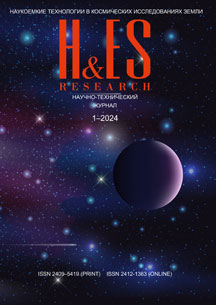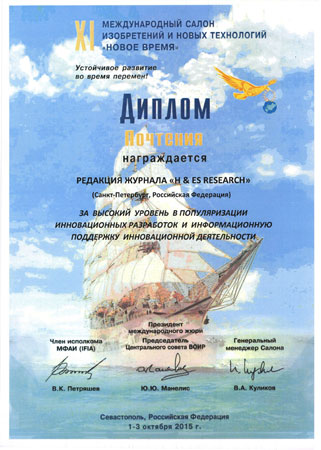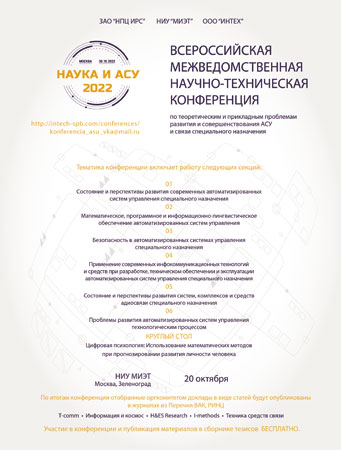To study complex systems, which include communication systems, both analytical and simulation modeling are used. Recently, simulation modeling has become widespread, which is becoming one of the most powerful analysis and synthesis tools used by specialists in the study and design of complex systems.
However, traditional simulation modeling usually has a number of difficulties that arise from trying to represent processes in real systems in greater detail. At the same time, there is currently a tendency in modeling to improve the accuracy and adequacy of the created models. The answer to this requirement is the emergence of agent-based simulation.
The aim of the article is to show the possibility and feasibility of using this rather new direction of modeling for the study of a special purpose communication system (SPCS). SPCS as an object of modeling is a rather complex system characterized by many parameters, and an attempt to improve some characteristics can and often leads to deterioration of other characteristics of this system.
The article discusses the construction of a model of technical support for the SPCS based on the agent-based approach. The proposed approach to the construction of such a model, in contrast to the well-known approaches to the construction of simulation models, allows you to study the system "bottom-up". The developed model provides an opportunity to assess the quality of functioning of the SPCS taking into account the performance indicators of its elements, presented in the form of individual interacting agents, as well as a variety of random factors. The article deals with the application of the agent-based approach to modeling the technical support of the SPCS. The formulations of the problems of analysis and synthesis of SPCS are formulated. The composition of the components and the structure of the agent model are discussed. The aspects of the implementation of the agent-based model in the AnyLogic tool environment and the possibility of conducting experiments using this model are demonstrated. It is shown that the agent-based model of the technical support of the SPCS is universal for systems that implement similar functions. It allows simulating, setting and changing many network characteristics in a wide range, as well as determining the coefficient of technical availability of this system.



















